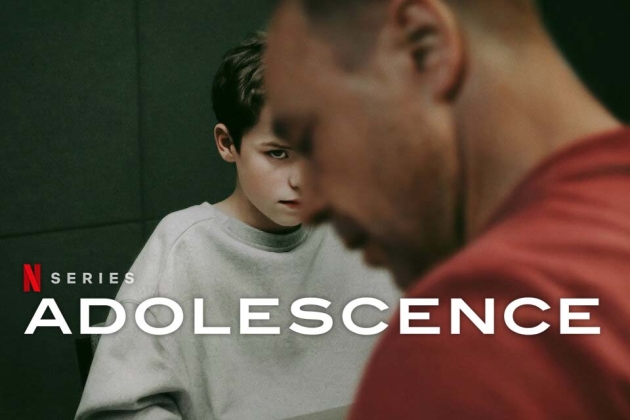
The Netflix series Adolescence exposes a long-standing crisis that’s getting worse.
Here’s how we push back.
I’ve met boys like Jamie. For two years, I taught workshops on consent and healthy masculinities to youth in the carceral system under a program called WiseGuyz at the Centre for Sexuality. The learning went both ways as we explored big questions together:
-
What are healthy ways to process rejection?
-
How can you ask for help?
-
How can we critically examine media messages about masculinity?
These conversations weren’t just theoretical—they were about survival, growth, and our collective commitment to safety. These interventions, coupled with a supportive environment, can make a critical difference in the development of someone like Jamie.
Gender-based violence isn’t new—it's deeply rooted in unequal power dynamics and patriarchal norms. What is new is the scale and speed at which harmful ideas about gender are spreading through online spaces, preying on impressionable young people who are looking for answers.
Netflix’s four-part series Adolescence is a chilling wake-up call to how the online manosphere is radicalizing boys with violent ideas about masculinity. Garnering 66.3 million views worldwide, the series has caught the attention of British Prime Minister Keir Starmer, who supports an initiative to screen it for free in secondary schools as a warning about the dangers of digital spaces. The show has also sparked wider discussions about the responsibility of parents and schools in safeguarding young people online.
State of Sexuality Education Across Canada
Yet in Ontario, students are being left behind. The province’s sex-ed curriculum was written before social media even existed, failing to equip youth with the tools to navigate today’s digital landscape. This is true across Canada, where the right to comprehensive sex-ed is not being upheld. In practice, this means that youth aren’t learning about expressing their emotions, communicating consent, processing stress or preventing STIs.
When youth lack access to comprehensive sex-ed, they often turn to online forums and influencers to make sense of the world. Without fact-checking this can result in a rise in misinformation, reproductive coercion, misogyny, and harmful gender roles.
Comprehensive sex-ed is one of the most powerful tools we have to disrupt this pattern. It gives young people accurate, age-appropriate information about their bodies and relationships. It also helps prevent STIs, unplanned pregnancies, and gender-based violence—not just by teaching anatomy, but by fostering media literacy, empathy, and the ability to challenge unhealthy norms.
It’s tempting to conclude that the solution is simple: ban social media for those under the age of 16, as Australia has done. But prohibition doesn’t make problems disappear; it only drives them underground, cutting off a crucial lifeline for many isolated youth—including queer and trans teens—who rely on online resources for support and information.
Instead, we must empower young people, like Jamie and those around him, with facts, critical thinking, and space to ask big questions. The skills I saw young men develop in our workshops—dissecting media narratives, challenging harmful norms of masculinity, and building healthier ways of relating—must be cultivated at scale.
So what do we do?
We invest in comprehensive sex-ed programs to equip the next generation with the realities of having relationships in our digital world. We also need to hold big tech accountable as it amplifies the misogynistic worldview of figures like Andrew Tate and Jordan Peterson. Social media algorithms don’t just reflect our divisions; they deepen them, trapping users in cycles of outrage, polarization, and radicalization. This is part of our fight to ensure every young person has access to the knowledge they need to thrive.
If Adolescence teaches us anything, it's that young people are deeply shaped by the media. They’re trying to make sense of the world, just like the rest of us. Let’s ensure they have the tools to do it—and hold the corporations shaping their realities accountable.
About the Author
Quinn Lazenby, Toronto ON.
Quinn is a Communications Strategist at Action Canada for Sexual Health and Rights. Before working in federal advocacy, Quinn worked at the grassroots level, facilitating workshops on consent and healthy masculinities to youth in Alberta.